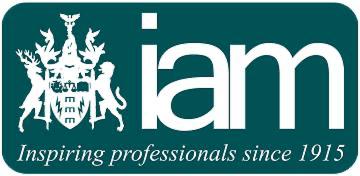PRINCIPLES OF MARKETING
SELF-PACED COURSE
About this Course
This course covers all of the substantive material that is usually taught in a one-semester introductory course in marketing. Such a course is usually known as Basic Marketing, Introduction to Marketing, Fundamentals of Marketing, Marketing or Marketing Principles. The goal of the creator of this course –Modern States Education Alliance, a non-profit organization– is to prepare you to pass the CLEP examination and obtain college credit for free.
“In this course, we will review four separate modules. The first Module discusses the Role of Marketing in a Firm. It will give an introduction to what marketing is, what is marketing strategy and what tools a company has in order to implement these strategies. The second module discusses consumer-driven marketing. It will introduce the concept of buyer behavior, the psychological factors and environmental factors that influence the decision making the process of a consumer, and the five stages of the decision making process. The module ends with STP – segmentation, targeting, and positioning. The third module discusses the marketing implementation and the marketing mix. It will introduce each of the 4 Ps: product, price, place, and promotion. This is the main part of the course and the one you want to concentrate on the most. We will conclude with module four which discusses ethical issues that might emerge in marketing as well as non-profit marketing,” explains Professor Tamar Avnet.
The “Principles of Marketing” course is organized into four topical chapters or modules that contain short video lessons, exercises and readings. It is completely self-paced. It will take you less than 25 hours to prepare for the exam.
There are no prerequisites to take this course, and it is entirely free.
- CLEP Exam
The CLEP examination is concerned with the role of marketing in society and within a firm, understanding consumer and organizational markets, marketing strategy planning, the marketing mix, marketing institutions, and other selected topics, such as international marketing, ethics, marketing research, services and not-for-profit marketing.
Candidates are expected to have a basic knowledge of the economic/demographic, social/cultural, political/legal and technological trends that are important to marketing.
This exam contains approximately 100 questions to be answered in 90 minutes. Some of these are pretest questions that will not be scored.
- Required Knowledge and Skills
The percentages next to the main topics indicate the approximate percentage of exam questions.
- Role of Marketing in a Firm (17%–24%)
- Customer-Driven Marketing Strategy: (22%–27%)
- MarketingStrategyImplementation: Marketing Mix (40%–50%)
- Roleof Marketing in Society (5-7%)
- Course Modules
Following are the main topics and percentages of the exam’s questions, mostly based on the College Board’s description of the course:
- RoleofMarketing in a Firm (17%–24%)
1.1 Marketing Concept – Creating Satisfaction Through Marketing Relationships
1.2 Marketing Strategy and the Process of Planning
1.3 Marketing Environment – SWOT, Environmental Scanning, and Situation Analysis
1.4 Marketing Research – Managing Marketing Information to Gain Insights
- Customer-DrivenMarketing Strategy: (22%–27%)
2.1 Consumer Behavior
2.1.1 What is Consumer Behavior?
2.1.2 Psychological Factors Affecting Consumer Behavior
2.1.3 The Decision-Making Process
2.2 Segmentation
2.3 Targeting
2.4 Differentiation and Positioning
2.5 Business-to-business Markets
- MarketingStrategyImplementation: Marketing Mix (40%–50%)
3.1 Product and Service Management
3.2 Branding
3.3 New Product Development
3.4 Pricing Strategies and Customer Value
3.5 Distribution Channels and Logistics – Delivering Customer Value
3.6 Integrated Marketing Communications/Promotion
3.6.1 Case Study
3.7 Marketing Application in e-Commerce
3.7.1 Case Study
- Roleof Marketing in Society (5-7%)
4.1 Ethics
4.2 Nonprofit marketing
- About Tamar Avnet, Professor at Yeshiva University
Tamar Avnet is an Associate Professor of Business in Marketing at the Sy Syms School of Business at Yeshiva University, whose faculty she joined in 2006. Prior to joining SSSB, Tamar Avnet has been an assistant Professor of Marketing at Rotman Business School at the University of Toronto. She taught at the MBA program at Rotman Business School as well as at Columbia Business School. She is also the department chair of Marketing at SSSB. Prof. Avnet has a Bachelor degree in Economics and Master of Science from the Institute of Technology (Technion) in Israel, and a PhD in Marketing from Columbia Business School. She has held a visiting Professorship at New York University.
Professor Avnet’s business expertise and consulting activities are in the areas of marketing strategy and management, branding strategy, consumer psychology, and the psychology of decision making. Her current research is within Consumer Behavior and more specifically in Human Judgment and Behavioral Decision Making. Her main area of research investigates how consumers use and rely on their feelings and emotions when making a product choice or a purchase decision. Her numerous scientific articles are widely cited and have appeared in many leading academic journals in marketing, management, and psychology, including the Journal of Consumer Research, Journal of Marketing Research, Journal of Consumer Psychology, Journal of Experimental Social Psychology, Organizational Behavior and Human Decision Processes, and Advances in Consumer Research.
Professor Avnet is on the review board of the Journal of Consumer Research and serves as a peer reviewer on several top academic journals such as: Journal of Consumer Research, Journal of Consumer Psychology, Journal of Marketing Research , Journal of Social and Personal Relationships, Journal of Personality and Social Psychology, Journal of Applied Social Psychology, International Journal of Research in Marketing, and so on.
- How CLEP Works
Developed by the College Board, CLEP (College-Level Examination Program®) is the most widely accepted credit-by-examination program.
CLEP’s credits are accepted by 2,900 colleges and universities, according to College Board. These tests assess college-level knowledge in 33 subject areas.
On average, a college course costs $700 while a CLEP exam costs $80.
Modern States Education Alliance is the non-profit organization behind these edX-style courses. Its project is called “Freshman Year for Free” and its mission is to make college more accessible and affordable through free, high-quality online education.


